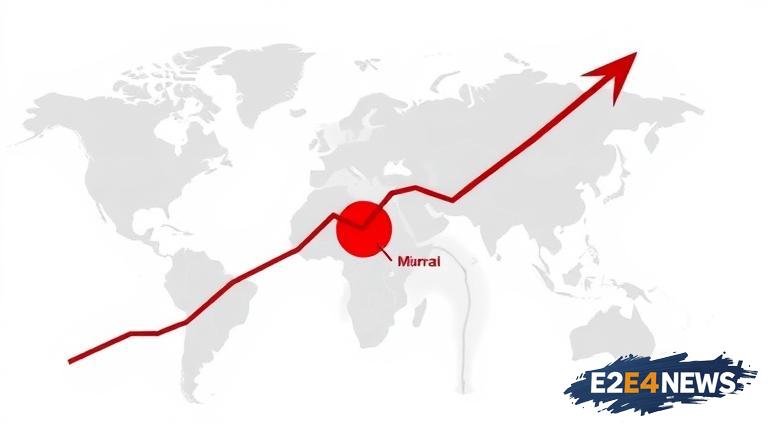Bangladesh has witnessed a notable increase in remittance inflows in recent times, primarily driven by the contributions of expatriate workers. This surge in remittances has been observed amidst the prevailing global economic uncertainty, which has affected many countries worldwide. The country’s remittance inflows have been steadily rising over the past few years, with a significant spike in the last quarter. According to recent data, the total remittance inflow into Bangladesh has exceeded $2 billion, marking a substantial increase from the previous year. This growth can be attributed to the increasing number of expatriate workers sending money back to their families in Bangladesh. The majority of these workers are employed in the Middle East and Southeast Asia, where they work in various sectors such as construction, manufacturing, and services. The remittance inflows have not only contributed to the country’s foreign exchange reserves but also provided a vital source of income for many families in Bangladesh. The government has implemented various initiatives to encourage expatriate workers to send remittances through formal channels, which has helped to increase the inflows. Additionally, the central bank has taken measures to simplify the process of sending and receiving remittances, making it more convenient for workers and their families. The rise in remittance inflows has also had a positive impact on the country’s economy, as it has helped to stabilize the exchange rate and increase foreign exchange reserves. Furthermore, the remittances have contributed to the growth of the country’s GDP, with the sector accounting for a significant portion of the economy. The government has recognized the importance of remittances and has taken steps to promote the sector, including the introduction of new policies and incentives. The increase in remittance inflows has also led to an increase in investment in various sectors, including real estate, construction, and small businesses. However, despite the growth in remittances, there are still challenges that need to be addressed, such as the high cost of sending remittances and the lack of access to formal banking channels for many workers. The government and other stakeholders are working to address these challenges and promote the growth of the remittance sector. In conclusion, the significant rise in remittance inflows in Bangladesh is a positive development for the country’s economy, and it is expected to continue growing in the coming years. The government and other stakeholders must continue to work together to promote the sector and address the challenges that exist. With the right policies and initiatives, the remittance sector can continue to play a vital role in the country’s economic development. The growth of the remittance sector has also led to an increase in economic activity, with many businesses benefiting from the increased inflows. The sector has also created new opportunities for employment and investment, contributing to the country’s overall economic growth. Moreover, the remittance sector has helped to reduce poverty and improve living standards for many families in Bangladesh. The government has also recognized the importance of remittances in achieving the country’s development goals, including the Sustainable Development Goals (SDGs). Overall, the rise in remittance inflows is a positive development for Bangladesh, and it is expected to continue playing a vital role in the country’s economic development in the coming years.
